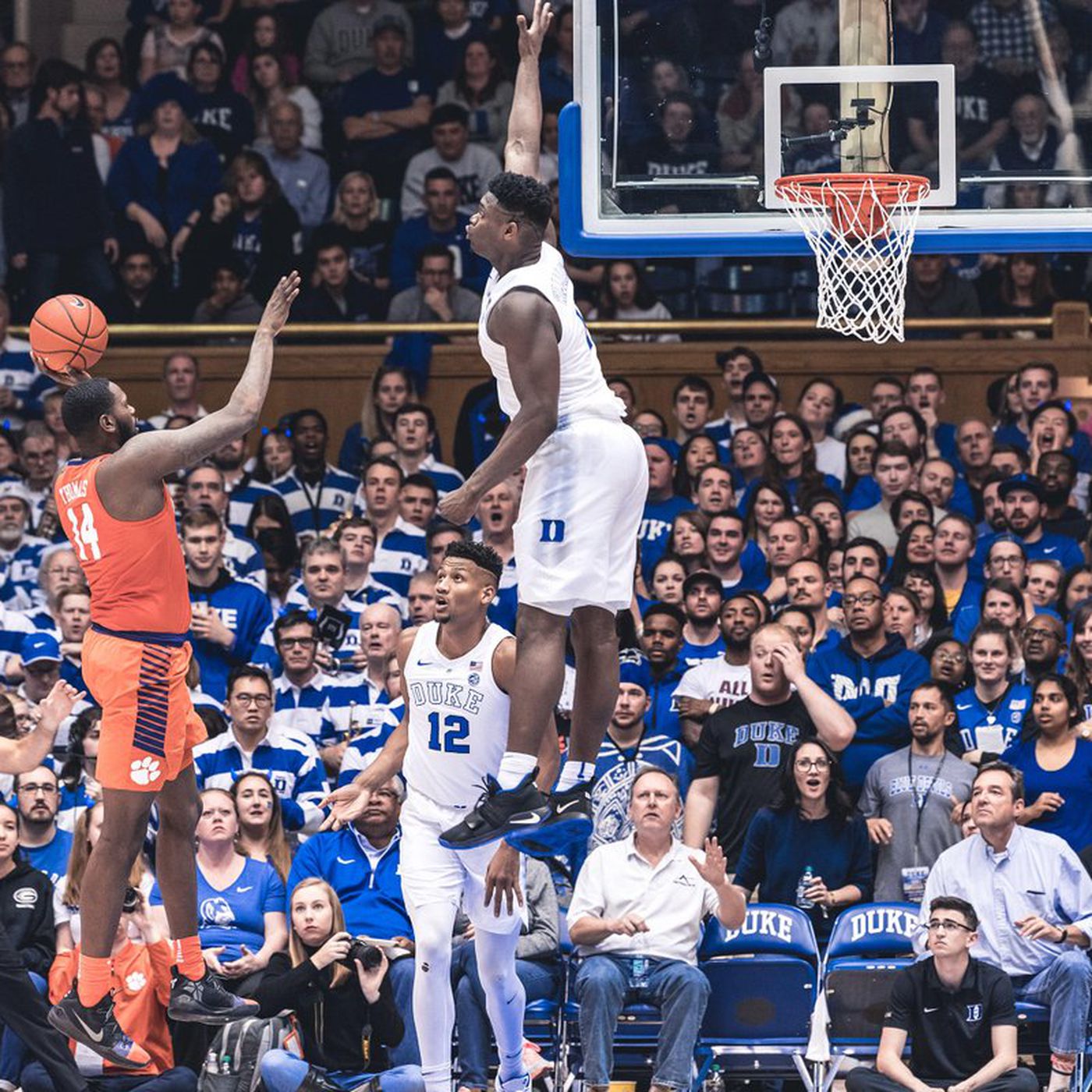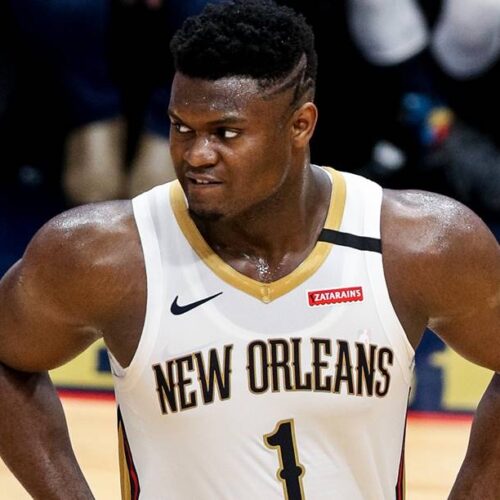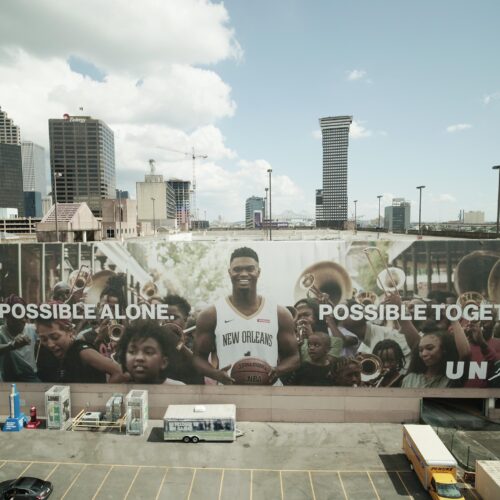The date is May 14, 2019. Four teams remain in the NBA Playoffs: Warriors, Trail Blazers, Bucks, and Raptors. It has been over a month since the New Orleans Pelicans have played since being eliminated from the Playoffs with the 2nd worst record in the Western Conference. This day is special; the NBA draft lottery takes place, where teams find out what number pick they have in the upcoming draft. There is one man that everyone has their eyes on at the #1 pick: Zion Williamson. After an astounding college season as a freshman at Duke University, experts are comparing Zion’s abilities to LeBron James, the biggest household name in basketball of the 21st century. New Orleans has a 7.5% chance of landing the first pick, with 6 teams ahead of them with better odds. Luckily enough, the Pelicans receive the news that they indeed got the first pick. On TV, the camera pans to all the New Orleans fans packed in Jackson Square, celebrating as if they received the news that World War II is over and America has won. A month later, with the first pick of the NBA draft, the New Orleans Pelicans select Zion Williamson.

Zion blocking a shot at Duke. Photo Credit: Duke University
The low theory argues that failure to live up to societal standards can open up more creative ways of thinking and being in the world. “If success requires so much effort, then maybe failure is easier in the long run and offers different rewards.” The Pelicans ultimately discovered an unanticipated truth and solution while experiencing failure, which reinforces the low theory. From the outside looking in, the Pelicans as an organization is a failure. Since being established in 2002, they have made the playoffs seven of their eighteen seasons. Of those seven playoff appearances, they have only made it to the second round twice. That is objectively poor for any professional team. The Atlanta Hawks, a team that is in a similar market to the Pelicans, has reached the playoffs ten times and made it to the second round five times since 2002.
Two seasons ago, they traded away their superstar player, Anthony Davis, for three first-round draft picks and three players that are all considerably worse than Davis. Their plan: they didn’t have a plan. The Pelicans were too mediocre to tank their season in order to get a top pick and too mediocre to make the playoffs. Besides winning a championship, making the playoffs is the number one goal for NBA owners since it increases team revenue even more. The main question for New Orleans was: What did the Pelicans learn from their failure? This isn’t a question that can be answered through Google. Going into the draft lottery, the Pelicans were not anticipating getting the number one pick. For as stated before, the Pelicans had the 6th best odds to get the number one pick at 7.5%. Thus, what they learned is what every franchise eventually learns after failing: Sometimes you need the right amount of luck at the right time. In 1984, the Chicago Bulls had the third pick in the NBA draft. The top two picks were the top two unanimous players in the draft, Akeem Olajuwon and Sam Bowie. If the Bulls had the second pick, they would’ve taken one of those two players. But luckily, they had the third pick. And that player happened to be Michael Jordan, who led the team to six championships in an eight-year span; the best franchise run in NBA history. The point is that neither the Bulls nor the Pelicans anticipated having their entire franchise turned without a lot of luck.

Zion on the court for the Pelicans. Photo Credit: Stephen Lew
Luck isn’t something that people look for; it comes at the least expected times. In the Pelicans’ case, their luck was a once-in-a-decade jackpot. Having Zion on the Pelicans won’t only benefit the team’s play but will help the economy of New Orleans in all facets. Zion Williamson can improve tax revenue, hotel occupancy, store revenue, tourism, and overall happiness in New Orleans. Only a handful of NBA players have the ability to do this, and this is why the 20-year-old rookie brings economic success to any city he plays for.
Over the past decade, New Orleans has been an up and coming city in the country. But on a national scale, New Orleans is still far behind the national average in median household income. The United States median household income average in 2019 was $68,703 while New Orleans’ median household income was $38,423. In 2018, Tampa Bay, Florida, which is almost the same size in terms of population as New Orleans, had an MHI of $54,599. In order for these statistics to grow, New Orleans must increase the rate of immigration into the city. The more revenue businesses bring into the city, the more business opportunities will be available for potential workers. In a study by PWC done in 2009, they concluded a 1% increase in revenue correlates to a .80% increase in employment. Fortunately, revenue has already been streaming into New Orleans since Zion arrived. Immediately after drafting Zion, the Pelicans sold over 12,000 season-ticket seats to fans, the most they have ever sold in a season. With the average ticket price being $48 at the Smoothie King Center, the Pelicans grossed over $576,000 in just a few days. Zion Williamson’s jersey sales ranked 15th in the entire NBA before he even played a game, which is almost unheard of for a rookie. The last rookie player to be top fifteen in jersey sales was in 2003 when a young kid from Akron signed with the Cleveland Cavaliers. That kid was LeBron James, the undisputed best player of the 21st century.
Fans of Zion traveled all across the country and world to watch him play in New Orleans. When people travel from out of town, most of them stay for the weekend or week. Thus, hotel bookings increased drastically in New Orleans in the month of January 2020, the month when Zion debuted for his first game. In January of 2019, hotel occupancy in New Orleans was 73.8%. In January of 2020, hotel occupancy in New Orleans was 74.7%. When people are traveling from out of town, they spend more money at restaurants and stores, which in turn creates more tax revenue for the city of New Orleans. The Zion Effect.

Banner of Zion in downtown New Orleans. Photo Credit: Jordan Brand
It is imperative to note that Zion’s economic gain doesn’t only occur because of his presence in a city, but the team’s success is a major catalyst for economic gain as well. According to a study on Homes.com, a website that focuses on home values in the United States, researchers revealed that NBA teams with high winning percentages increase the city’s employment rate, population, average home price, and GDP. In contrast, teams with low winning percentages affect these statistics adversely. In 2018, the season before Zion was drafted by New Orleans, the Pelicans had a winning percentage of 40.1%. In the next season, with Zion playing, the Pelicans had a winning percentage of 62.5%.
A 7.5% chance of landing the number one pick and somehow getting it. Check. Zion Williamson, the most anticipated young player in years, is drafted at the number one pick. Check. The Pelicans’ winning percentage increasing by over 20%. Check. Hotel occupancy, ticket sales, jersey sales, and store revenue increase in New Orleans. Check. If one told Gayle Benson, the owner of the Pelicans, in 2018 that this was going to be the chain of events for her team, she would laugh in their face. This is the beauty of sports. At one moment, all hope for a team can be lost. But in the next minute, everything can be flipped upside down and somehow success can be attained.
“People say they don’t believe in luck: luck is the reason the dinosaurs got wiped out and why human beings became the new dominant species on this planet.”
 NOLAbeings
Multimedia artist Claire Bangser created NOLAbeings as a portrait-based story project that marries...
NOLAbeings
Multimedia artist Claire Bangser created NOLAbeings as a portrait-based story project that marries...
 Data corner: Adobe Suite (create a PDF, social media graphic, presentation, edit a photo and video
Data corner is where you go to work with analytics and top tech skills. It takes on everything from PERL and SQL to Canva and Sprout Social.
Data corner: Adobe Suite (create a PDF, social media graphic, presentation, edit a photo and video
Data corner is where you go to work with analytics and top tech skills. It takes on everything from PERL and SQL to Canva and Sprout Social.
